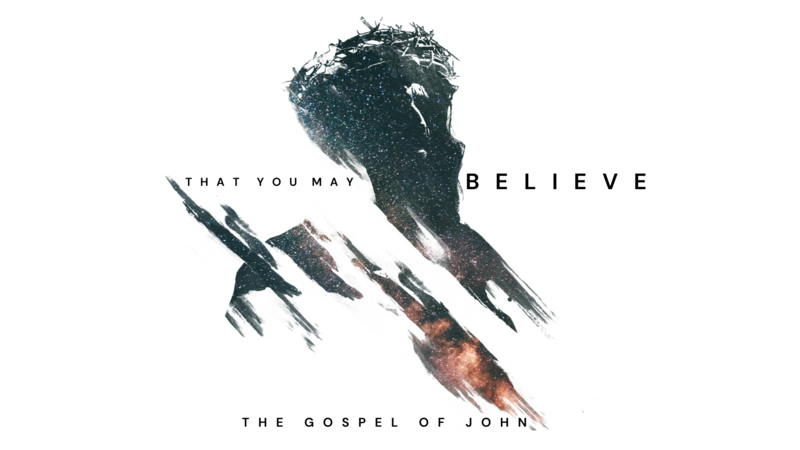
Come with me to the Roman Province of Asia Minor and the year is sometime between 80-90 A.D. It is some 50-60 years after Jesus has died on the cross, risen from the grave, and has gone back to heaven. Shortly before he left, he got together with his disciples who for the previous 3 years had been with him 24/ and were becoming like Jesus and learning to do what Jesus did. AND he said to them: See Matthew 28:19-20 & Acts 1:8-11…
One of his disciples who was a teenager at that time is now 50-60 years older. He is a Pastor in Ephesus and the Bishop of the Christian churches in the Roman Province of Asia Minor. His name is John, and he writes what we know of as the 4th Gospel in the New Testament (Gospel means The Good News about Jesus). In chapter 20:30-31, John tells his readers and us today the reason why he wrote about his three years of spending almost every day with Jesus. See John 20:30-31… John wrote this book so that anyone reading it may continue to believe in Jesus and have life by the power of his name.
John 1:1-2: In the beginning the Word already existed. The Word was with God, and the Word was God. 2 He existed in the beginning with God.
John 1:3: 3 God created everything through him, and nothing was created except through him.
John 1:4-5: 4 The Word gave life to everything that was created, and his life brought light to everyone. 5 The light shines in the darkness, and the darkness can never extinguish it.
Light refers to God’s truth (Psalm 119:105, Proverbs 6:23, 2 Corinthians 4:4) - Darkness refers to falsehood (Romans, 2:19)
Light refers to God’s holiness (Romans 13:12, 2 Corinthians 6:14, Ephesians 5:8, 1 Thessalonians 5:5) - Darkness refers to sin (Proverbs 4:19, Isaiah 5:20)
Satan's Kingdom is the domain of darkness (Colossians 1:13, Luke 22:53, Ephesians 6:12) - Jesus is the source of life and the light that shines in the darkness of the lost world. (John 1:4-5)
The world in which John is writing his gospel is a place where the people worshipped mythical Greek gods. In his Gospel, John will speak to many of these mythological gods as we will see in future weeks. Every miracle of Jesus which John tells, addresses the false gods and John is saying to the people of his day that God (Yahweh as HE is revealed in the Bible) is the real creator and provider, and his Word (Jesus) is the ONLY WAY we can know him and have a relationship with him that gives us spiritual and eternal life.
We don’t worship these mythological gods today, but John’s message is just as relevant in our day as it was then because we are tempted to worship other mythical gods besides Jesus – the gods of money, possessions, power and position, sports, leisure… anything that takes priority in our life above our relationship with God.
We are also tempted to worship these false gods in our culture and still worship Jesus as we often worship and give our allegiance to both Jesus and what our culture says we need to make a priority at times over our relationship with God. This was happening in John’s Day as the Caesars declared they were divine, and they said you could worship other gods if you want, BUT YOU BETTER ALSO WORSHIP THEM or suffer persecution.
John 1:6-9: 6 God sent a man, John the Baptist, 7 to tell about the light so that everyone might believe because of his testimony. 8 John himself was not the light; he was simply a witness to tell about the light. 9 The one who is the true light, who gives light to everyone, was coming into the world.
John 1:10-13: 10 He came into the very world he created, but the world didn’t recognize him. 11 He came to his own people, and even they rejected him. 12 But to all who believed him and accepted him, he gave the right to become children of God. 13 They are reborn—not with a physical birth resulting from human passion or plan, but a birth that comes from God.
John 1:14-18: John summarizes what he has said in verses 1-13…
Two Challenges:
- If you are in darkness, what is keeping you there?
- If you are trying to serve both Jesus and the gods of our culture, what is keeping you there?
We encourage you to take a few minutes today and this week to process this morning’s message. These questions are designed for discussion with your family, a friend, mentor, spouse, and small group. They are also useful for self-reflection.
1. What stands out to you in these passages from the Bible? From the message?
2. What is difficult for you to understand or accept in these passages from the Bible? From the message?
3. What is God saying in these passages and through what we heard in the message about Himself? About people? About you?
4. What examples are there to follow, commands to obey, or promises to stand on from these passages in the Bible, and from what we heard in the message?
